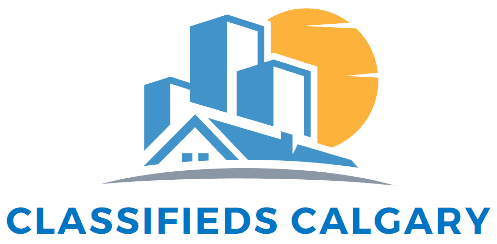When it comes to purchasing a home in Calgary, Canada, understanding mortgage options and financing is essential for making informed decisions and achieving homeownership dreams. As one of the most significant financial commitments for individuals and families, navigating the world of mortgages can be overwhelming. This article aims to provide clarity on the various mortgage options available in Calgary’s real estate market and shed light on the financing process, empowering potential homebuyers to approach their investment with confidence.
1. Types of Mortgages
In Calgary’s real estate market, homebuyers have access to several types of mortgages, each with its unique features and benefits. It’s crucial to understand the differences between these options to choose the one that best suits individual financial situations.
- – Fixed-Rate Mortgages: With a fixed-rate mortgage, the interest rate remains constant throughout the loan term. This provides stability and predictability in monthly payments, making it an attractive option for budget-conscious homebuyers.
- – Adjustable-Rate Mortgages (ARMs): ARMs offer an initial fixed-rate period, followed by an adjustable interest rate that fluctuates based on market conditions. While ARMs may start with lower rates, they can change over time, potentially affecting monthly payments.
- – Government-Backed Mortgages: Government-backed mortgages, such as FHA (Federal Housing Administration) or VA (Veterans Affairs) loans, are designed to assist specific groups of homebuyers with lower down payment requirements and more flexible qualification criteria.
- – Conventional Mortgages: Conventional mortgages are not government-backed and typically require a higher down payment. These mortgages are suitable for homebuyers with strong credit histories and financial stability.

2. Down Payment Requirements
The down payment is a crucial aspect of homebuying, and the amount required can vary based on the type of mortgage and the lender’s policies. In Canada, the minimum down payment for a home depends on the purchase price:
- For homes valued up to $500,000, the minimum down payment is 5% of the purchase price.
- For homes valued between $500,000 and $999,999, the minimum down payment is 5% of the first $500,000 and 10% of the remaining amount.
- Homes priced at $1 million or more require a minimum down payment of 20%.
It’s important to note that a larger down payment can lead to lower monthly mortgage payments and potentially better interest rates.
3. Mortgage Pre-Approval
Obtaining a mortgage pre-approval is a crucial step in the homebuying process. Pre-approval involves a thorough assessment of the borrower’s financial situation, credit history, and ability to repay the loan. The lender will provide a pre-approval letter, indicating the maximum loan amount the borrower qualifies for.
Having a pre-approval letter gives homebuyers a competitive advantage in the real estate market, as sellers view pre-approved buyers as serious and credible. It also helps homebuyers determine their budget and narrow down their property search to homes within their price range. Content marketing for real estate business, learn more here.
4. Mortgage Interest Rates
Mortgage interest rates play a significant role in the total cost of homeownership. These rates can fluctuate based on various economic factors and market conditions. As such, homebuyers should monitor interest rate trends and be prepared to lock in a rate that aligns with their budget and long-term financial goals.
- – Fixed vs. Variable Rates: Homebuyers must decide between fixed and variable interest rates. Fixed rates provide stability, while variable rates can change during the loan term.
- – Rate Lock Period: When a borrower gets pre-approved for a mortgage, they may have the option to lock in an interest rate for a specific period, safeguarding against potential rate increases.
5. Mortgage Terms and Amortization
Mortgage terms refer to the length of time the borrower agrees to the current mortgage conditions. Common terms include 15, 20, 25, and 30 years. A shorter term typically comes with higher monthly payments but leads to overall interest savings.
Amortization refers to the period over which the mortgage is repaid. In Canada, the maximum amortization period for high-ratio mortgages (with less than a 20% down payment) is 25 years, while conventional mortgages can have longer amortization periods.
6. Mortgage Insurance
Mortgage insurance is a requirement for high-ratio mortgages (with less than a 20% down payment) in Canada. This insurance protects the lender in case the borrower defaults on the loan. Mortgage insurance premiums are typically added to the monthly mortgage payments.
7. Closing Costs and Other Expenses
In addition to the down payment and mortgage, homebuyers should be prepared for other expenses associated with closing a real estate transaction. Closing costs may include:

- – Legal Fees: Hiring a real estate lawyer to handle the legal aspects of the purchase.
- – Title Insurance: Protecting against any defects in the property title.
- – Home Inspection: Assessing the condition of the property and identifying any potential issues.
- – Land Transfer Tax: A tax on property transfers payable to the provincial government.
- – Property Appraisal: Determining the market value of the property.
- – Moving Expenses: Costs associated with relocating to the new home.
8. Mortgage Renewal and Refinancing
At the end of the mortgage term, borrowers have the option to renew their mortgage with the same lender or explore refinancing opportunities. Refinancing allows borrowers to negotiate a new interest rate, change the mortgage term, or access equity in the property for other financial needs.
- – Mortgage Renewal: When renewing a mortgage, borrowers can reassess their financial situation and explore better options based on current market conditions.
- – Mortgage Refinancing: Refinancing can be beneficial if interest rates have decreased since the original mortgage was obtained or if the borrower’s credit score has improved.
Conclusion
Understanding mortgage options and financing is paramount for successful real estate transactions in Calgary’s vibrant market. By familiarizing themselves with different mortgage types, down payment requirements, and mortgage terms, potential homebuyers can make informed decisions that align with their financial goals.
For more information on mortgage options and financing in Calgary’s real estate market, you can visit the Wikipedia. Armed with knowledge and the support of trusted real estate professionals, homebuyers can confidently navigate the world of mortgages and embark on a rewarding journey toward homeownership in Calgary.


